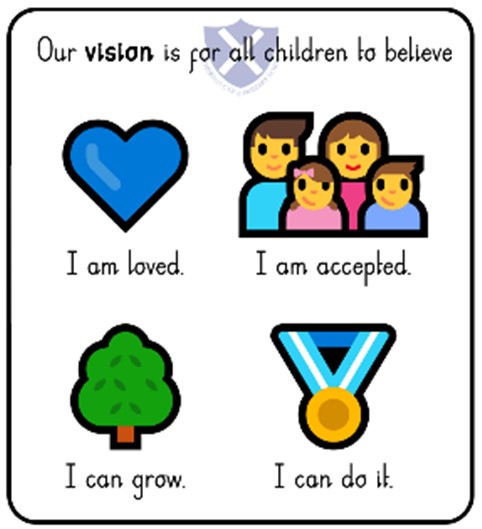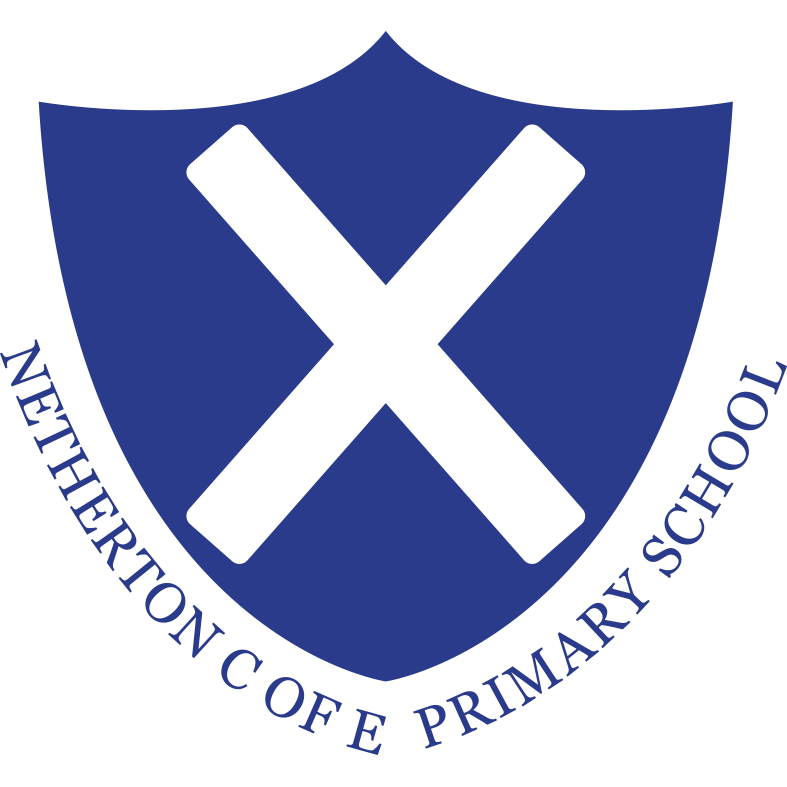Computing

Intent
At Netherton C E Primary School, we want all children to be enthusiastic and able learners of computing and eager to achieve their very best. Computing is to be held in high regard, as a stand-alone subject, as well as embedding it though other National Curriculum subjects giving children opportunities and experience. We place a high importance on E-Safety and equipping the children to be safe in an increasingly digital world.
Our vision is for children to believe, ’I can do it.’ We aim for all learners to be both knowledgeable in the subject academically and also able to develop life long computing skills.
Our vision is for all children to believe, ‘I can grow.’ The curriculum provides opportunity for children to develop their computing skills in all three areas: Digital Literacy, Computer Science and Information Technology. Preparing children for a world in which technology is at the forefront.
Our vision is for all children to believe ‘I am accepted’ and ‘I am loved’. We will provide all children regardless of ethnic origin, gender, class, aptitude or disability, with a broad and balanced computing curriculum, ensuring that all of our children will use technology thoughtfully and responsibly.
Implementation
In ensuring high standards of teaching and learning in computing, we implement a curriculum that is progressive throughout the whole school. Computing is taught in termly blocks. We have chosen to follow the ‘Teach Computing’ curriculum for computing. These units of work focus on the knowledge and skills outlined in the National Curriculum and are sensitive to our children’s interests as well as the context of the local area. At Netherton, we feel it is important to enable the children to reflect critically on what they have learnt, leading to the children taking ownership of their learning. Each unit of computing provides opportunities to apply reading and writing skills as a means of gaining and sharing knowledge.
Our computing curriculum aims to inspire our pupils, allowing them to solve problems and work as part of a team and independently. Our aim is to place emphasis on developing a range of skills, allowing our children to become good problem solvers. In turn, allowing them to apply this to other situations, something which we believe is a key life skill. Computing allows children to develop mathematical skills alongside their development of language, using a range of programming languages. Emphasis is placed upon analytical thinking and questioning which helps children gain a coherent knowledge and understanding of computing skills. Additionally, it will have a clear focus on key subject specific vocabulary which will progress through year groups. Our overall aim is for children to see computing as an on-going process not a one-off event.
The teaching of computing is monitored by the subject leader through lesson observations, work scrutiny, staff feedback and pupil voice. The subject leader supports staff to ensure high quality first teaching of computing.
Impact
Outcomes in computing demonstrate the children’s acquisition of key skills. This is monitored through the use of final projects, Golden Nuggets and exit tickets. Children gain knowledge on how to stay safe online, preparing them for an increasingly digital world. By the end of year 6, children will be able to programme a variety of different languages, critically analysing and explaining their reasoning. They are able to make connections between coding languages and how technology works in the world, offering solutions to different situations. Children will talk enthusiastically about their learning in computing and are eager to further their learning in the next stages of their education, leaving Netherton with a love of the subject and the skills needed in order to advance in an increasingly digital society.
Characteristics of a Computer Scientist
- Competence in coding for a variety of practical and inventive purposes, including the application of ideas within other subjects.
- The ability to connect with others safely and respectfully, understanding the need to act within the law and with moral and ethical integrity.
- An understanding of the connected nature of devices.
- The ability to communicate ideas well by using applications and devices throughout the curriculum.
- The ability to collect, organise and manipulate data effectively.
Potential Careers
- Software Engineer
- Web Developer
- Games Developer
- Data Scientist
- IT Project Manager
- AI Engineer
Road Map
Computing Road Map
Knowledge Organisers
Year 1 -
Year 1 -
Year 1 -
Year 2 -
Year 2 -
Year 2 -
Year 3 -
Year 3 -
Year 3 -
Year 4 -
Year 4 -
Year 4 -
Year 5 -
Year 5 -
Year 5 -
Year 6 -
Year 6 -
Year 6 -
